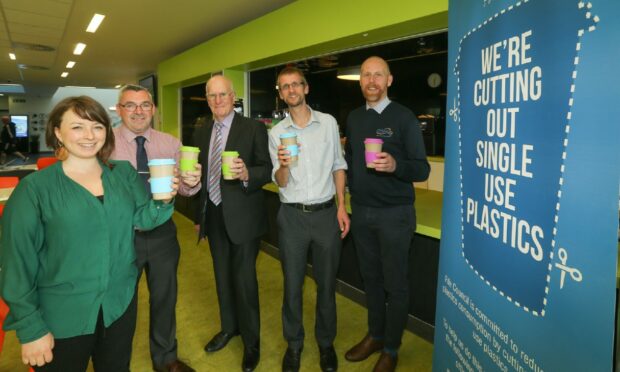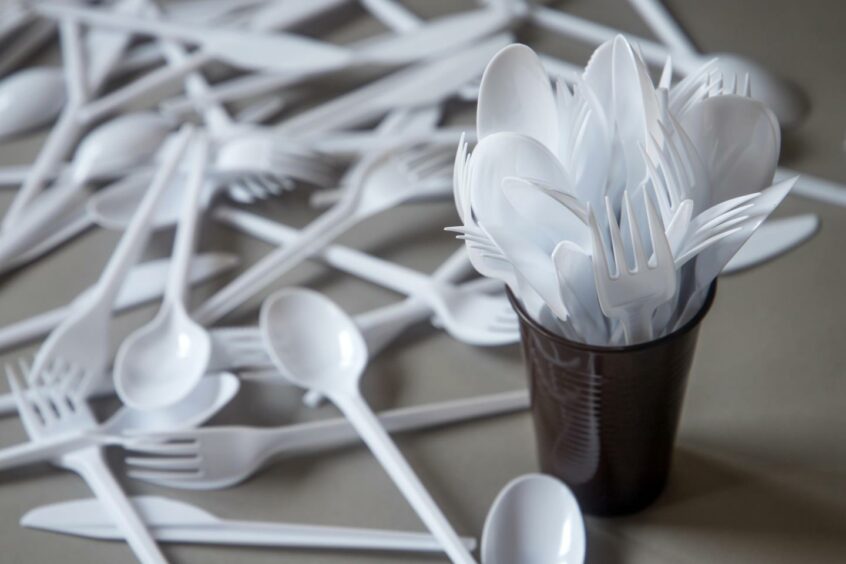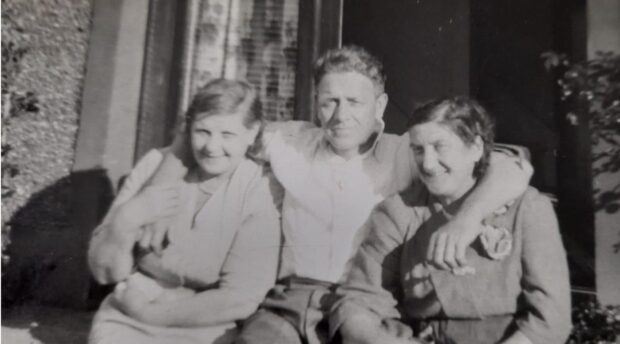Covid-19 has had a disastrous effect on Fife Council’s drive to reduce single-use plastics, a new report has revealed.
The local authority pledged back in June 2019 to cut single-use plastic cutlery, cups and straws from all Fife Council buildings and investigate the use of non-plastic alternatives for other catering items.
It teamed up with its arm’s-length bodies including ONFife and Fife Sports and Leisure Trust to phase out some plastic items.
But while there was encouraging initial success, it has emerged that the impact of Covid over the past year has – in many cases – reversed much of the excellent work achieved the year before.
80 times more wet wipes bought during Covid
That includes the need to buy 42 million wet wipes, more than 80 times the amount bought the previous year.
Numbers have increased sometimes by four-fold, particularly in relation to products related to health and hygiene and catering, with gloves, wet wipes, aprons, masks, sticky tape and plastic bags among those items seeing a dramatic uptick in use.
Council officials have blamed the need to use single-use plastics for health and safety reasons to manage the spread of Covid for the rise, while staffing issues and the impact of Covid on the supply chain – and therefore the ability to purchase alternatives – have also been cited.
Only changes to national Covid guidance will result in further substantive reductions (to plastic use) in some areas.”
Fife Council
In an update to councillors, Pam Ewen, head of the council’s planning service, said the increase had been disappointing, particularly as the council had achieved a 50% reduction in food containers and cutlery and a 40% reduction in plastic bags in the first year of the project.
She said: “The drive to reduce is still there.
“However, the risk to health (and) safety of our school children and vulnerable adults as well as supply issues will not be resolved until Covid is managed down or supply chains and processes adapt to reusable materials.
“We anticipate that business as usual and associated reduction of single-use plastics will not return soon, and only changes to national Covid guidance will result in further substantive reduction in some areas.”
A staggering 42.9 million wet wipes were purchased over a 12-month period, up from just 526,000 in 2019/20, while more than 2.5 million plastic pinnies and aprons were needed in 2020/21 compared to just 160,000 a year previously.
Nearly 1.9 million items of cutlery were purchased compared to just 627,000 the year before, although it was noted that some schools have returned to using metal cutlery while others are using wooden knives, forks and spoons.
Although not all wet wipes contain plastic, it has been reported that as much as 90% of the 11 billion wet wipes used in the UK each year contain some form of plastic.
It comes as most single-use plastics will be banned in Scotland from next June.
Morrisons buys into Fife recycling project that will create 60 jobs











